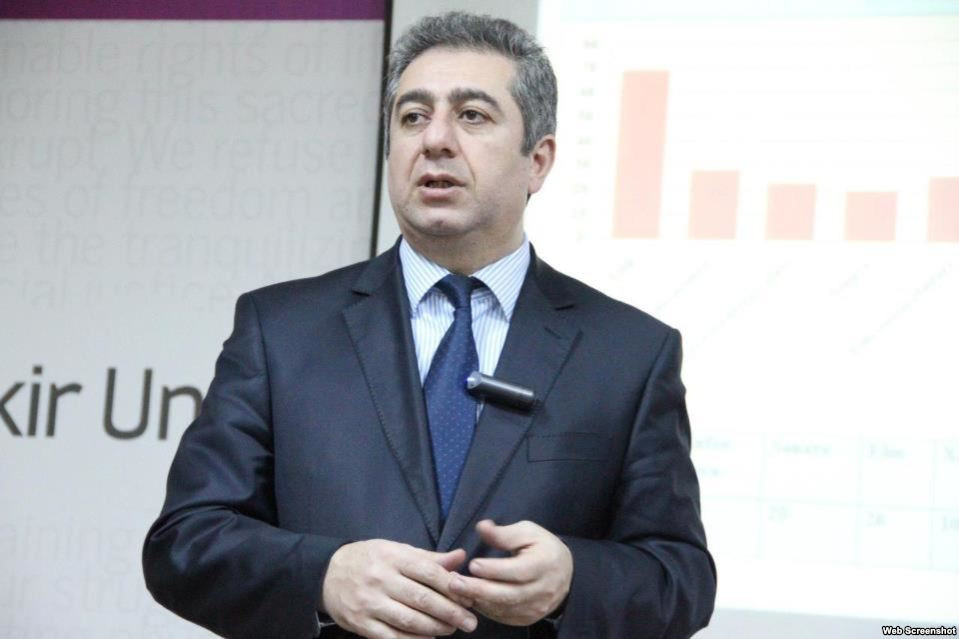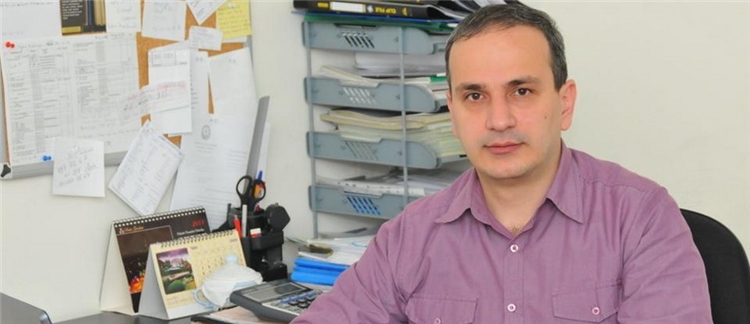
Правительство Азербайджана. AzerTac
Azerbaijan is the world leader in the scale of the shadow economy
Of the 28 countries surveyed, Azerbaijan has become the leader in the shadow economy, where two thirds of GDP falls on the informal sector. The share of the informal economy in our country reaches 67% of GDP, which is almost three times higher than the world average. These are the results of the study of the International Association of Chartered Certified Accountants (ACCA), dedicated to the assessment and forecast of the development of the global shadow economy (rbc).
A significant amount of the economy is in the shadow in Nigeria (48% of GDP), Ukraine (46%), Russia (39.3%), and Sri Lanka that closes the top five favorites of the shameful rating with an indicator of 38%. Next come Brazil (35%), Pakistan (32%), Bulgaria (30%), Estonia (28%) and Kenya (27%).
ACCA experts define the shadow economy as an economic activity and income derived from it that is outside the system of state regulation, taxation or supervision. The lowest indicators of the volume of the shadow sector in 2016 were recorded in the USA (7.8% of GDP), Japan (10%) and China (10.2%).
The share of the shadow economy in the global GDP was 22.66% in 2016, ACCA estimated. In the coming years it will decline to 22.5% in 2017, 22.1% in 2020 and 21.4% in 2025, experts predict. In Russia, the indicator practically does not change from year to year: in 2011 it was 39.33%, and by 2025 it will remain at the same level - 39.3%, expects ACCA.
As a rule, the shadow sector grows where the tax burden, the pressure of the state on business and the poverty level are high, business transactions are carried out without official registration or payment of taxes to the budget, the report says. For example, this presumes informal employment, trade "past the cash desk", and the provision of services outside government regulation. In Azerbaijan, as in Russia, the flourishing of informal business is helped by a high level of corruption, the weakness of democratic institutions and a recession in the economy.
Thus, Azerbaijan in terms of the share of the "shadow" sector in the national GDP has outrun not only the CIS neighbors, but even the African countries.

Qubad İbadoğlu
The coordinator of the National Council of NGOs on increasing transparency in extractive industries, Doctor of Economic Sciences Gubad Ibadoglu agreed with ACCA research results.
"If the volume of Azerbaijan's GDP for the past year amounted to 54.4 billion manat, of which more than 60% falls on the share of the shadow economy, in money terms it means that more than 30 billion manat falls on the "shadow market". A large shadow economy is, first of all, an indicator of the imperfection of the existing economic system, which, undoubtedly, requires reforming. The most serious problem preventing the fight against corruption is the lack of transparency in the state budget. Even parliamentarians do not have access to detailed information on public investment. Parliament does not take real part in controlling the use of national wealth," Ibadoglu told Turan IA.
In Azerbaijan, according to the expert, the authorities consider the shadow economy as a lesser evil. Moreover, many state officials and security officials actively use it, receiving shadow incomes. And all this is built into the existing economic system and is actually a part of it.

Samir Əliyev
The expert of the Economic Initiatives Support Center, Samir Aliyev believes the data of the international organization graphically characterize the situation in the domestic economy, the inefficiency of economic policy and the steps taken to combat corruption and monopoly. During the crisis, the share of GDP decreases, and accordingly, the shadow economy grows.
"If in Azerbaijan there was not such an impressive percentage of the shadow economy to GDP, then the crisis would have a lesser effect on us. Some people argue that in an uneasy financial situation in the country, one should not press on the shadow economy, as it feeds, for example, those who have been unemployed and find jobs in the illegal sector. But, you cannot ignore the fact that billions of AZN "flow" past the budget, not allowing the state to increase pensions, salaries or social benefits. It is necessary to look for ways to legalize illegal business sectors, declare an amnesty of capital that has been earned and exported abroad in a roundabout way. Only these measures will help to improve the economic situation in the country. We need political will and active measures to turn the dark side of the economy into a light one," Aliyev stressed. -0-

















Leave a review